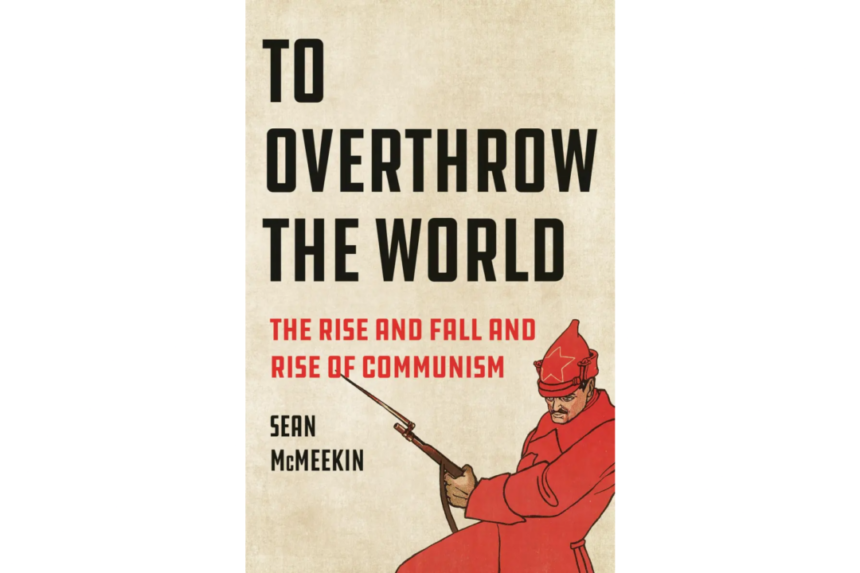The first part of this two-part book review introduces an enlightening book that delves into the birth and growth of a geopolitical cancer. The book, “To Overthrow the World: The Rise and Fall and Rise of Communism” by Sean McMeekin, provides valuable insights that fill gaps in knowledge and understanding about communism and the significant events it influenced over the centuries.
McMeekin approaches the subject matter like a social oncologist, examining the persistent geopolitical cancer of communism. He raises thought-provoking questions about the resurgence of communism in the 21st century and explores its origins in Europe, its global expansion, and its malignant evolution.
The author delves into the origins of communism, tracing it back to influential figures like Marx and Engels. He reveals the dark motivations behind Marx’s philosophy, characterized by resentment and a desire to incite conflict. McMeekin sheds light on how communism prioritized division and conflict over the well-being of the working class, emphasizing compulsory labor and obedience to authoritarian leaders.
Communism’s transformation into more extreme forms under leaders like Mao Zedong and Joseph Stalin is highlighted, showcasing the brutal realities of communist regimes. McMeekin also explores how communism exploited democratic principles to spread its ideology and gain traction in different parts of the world.
Overall, the first part of the book review sets the stage for a deep dive into the complex history and impact of communism, offering a critical analysis of its rise and consequences on a global scale. The Soviet “domestic relations law” had a significant impact on religiously blessed marriages, as they were neutralized in terms of legality. Secular civil ceremonies replaced traditional church weddings, while divorce shifted from being based on substantive reasons to mutual consent. The focus on convenience over commitment extended beyond marriage to wider family life, leading to the state not only legalizing but also subsidizing abortion.
Lenin’s control and monopolization of various aspects of society, including the media, education, and culture, aimed to spread communist propaganda. Internationalizing communism through funding global political parties to incite protests and civil unrest was a hidden agenda of Moscow.
While Lenin’s “New Economic Policy” embraced capitalism when necessary for economic revival, Stalin’s “collectivization” was aimed at showcasing the superiority of communism in agriculture, industry, and military power. The irony of Stalin’s industrial works being influenced by Western capitalist firms was noted.
The Eastern Bloc’s manipulation of doping regulations to enhance the performance of Olympic athletes for almost 40 years during the Cold War Olympics was a successful strategy. Despite Western press sensationalizing individual cases of doping, the industrial-scale state cheating of the Eastern Bloc was largely overlooked.
McMeekin highlights the complicity of Western sympathizers in downplaying communist atrocities and promoting its acceptability. Influential journalists like Walter Duranty and Edgar Snow whitewashed communist sins, contributing to its global rise.
The influence of communism extended to former colonies that remained officially “non-aligned” while benefiting from Soviet support in various sectors. Communist states utilized tactics like secularized state education and industrial espionage to gain advantages over Western powers.
China’s Deng Xiaoping’s strategic alliance with capitalist entities for economic growth without political liberalization set a precedent for China’s rise as a communist superpower in the 21st century. The book “To Overthrow the World: The Rise and Fall and Rise of Communism” by Sean McMeekin explores the alleged death and resurgence of communism.
Suggestions for arts and culture topics can be sent to features@epochtimes.nyc for consideration. Please rewrite the following sentence for me.
Source link





